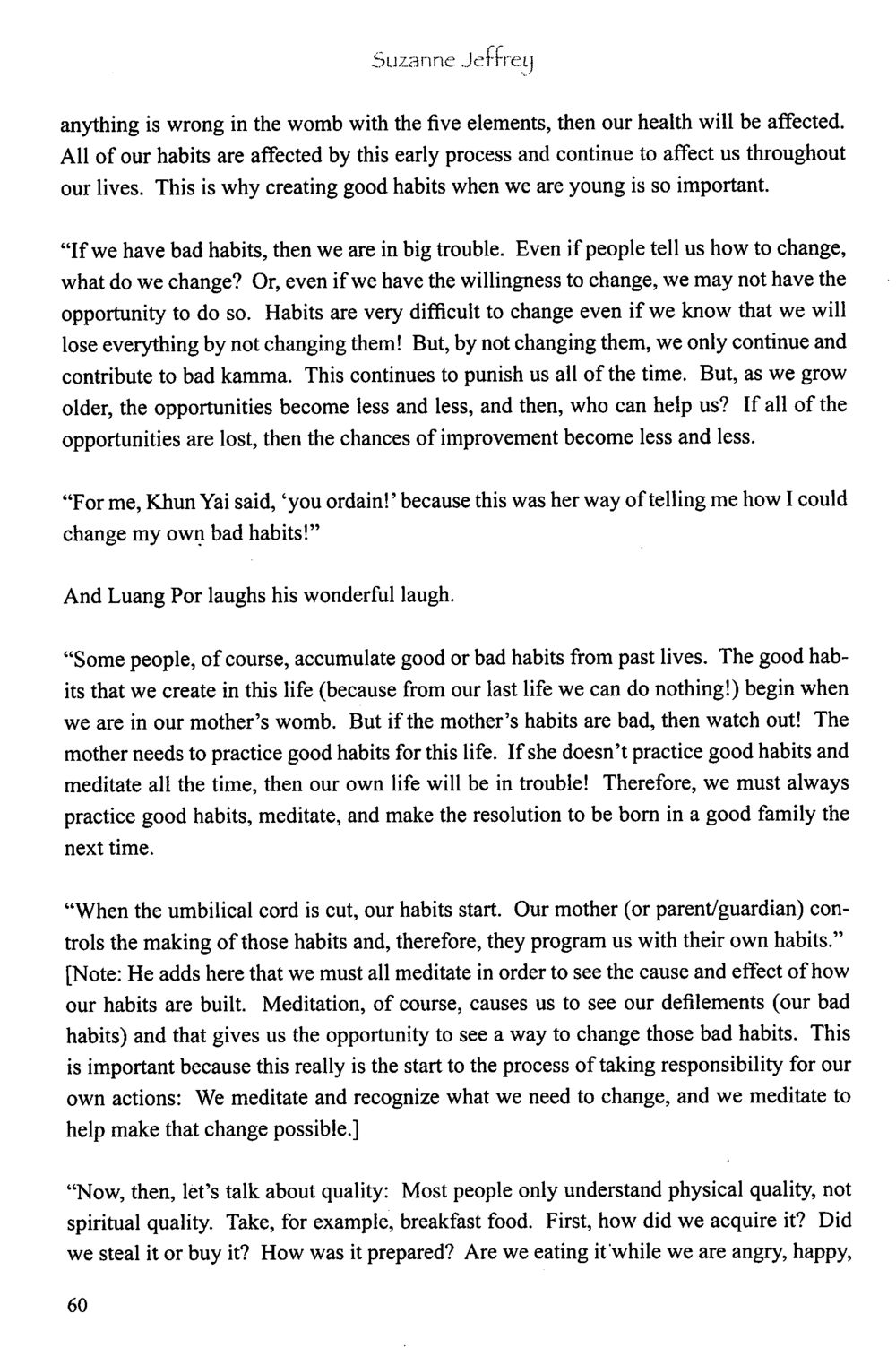Transforming Habits: The Importance of Early Development : หน้า 64/164
The Meeting with a Dhamma Master : หน้า 64/164 Explore the impact of early life habits on health and behavior, and the importance of meditation in changing bad habits.
0 ครั้ง

สรุปเนื้อหา
The text highlights the essential nature of developing good habits from a young age to influence overall health and wellbeing. It discusses how the mother's habits during pregnancy can affect the child, emphasizing the need for good practices including meditation to transform bad habits. Meditation is presented as a necessary tool for recognizing and changing detrimental behaviors inherited from past experiences or lives. The importance of being mindful about both physical and spiritual quality in our consumption and behaviors is also stressed. By gaining awareness through meditation, individuals can begin the process of taking responsibility for their actions and transforming their lives towards positivity. Ultimately, shaping good habits early on can lead to healthier lives characterized by enjoyment rather than suffering.
หัวข้อประเด็น
-Impact of habits on health
-The role of meditation in habit change
-Effects of parental habits on children
-Understanding spiritual quality
-Responsibility and self-awareness through meditation
ข้อความต้นฉบับในหน้า
หน้าหนังสือทั้งหมด




































































































































































